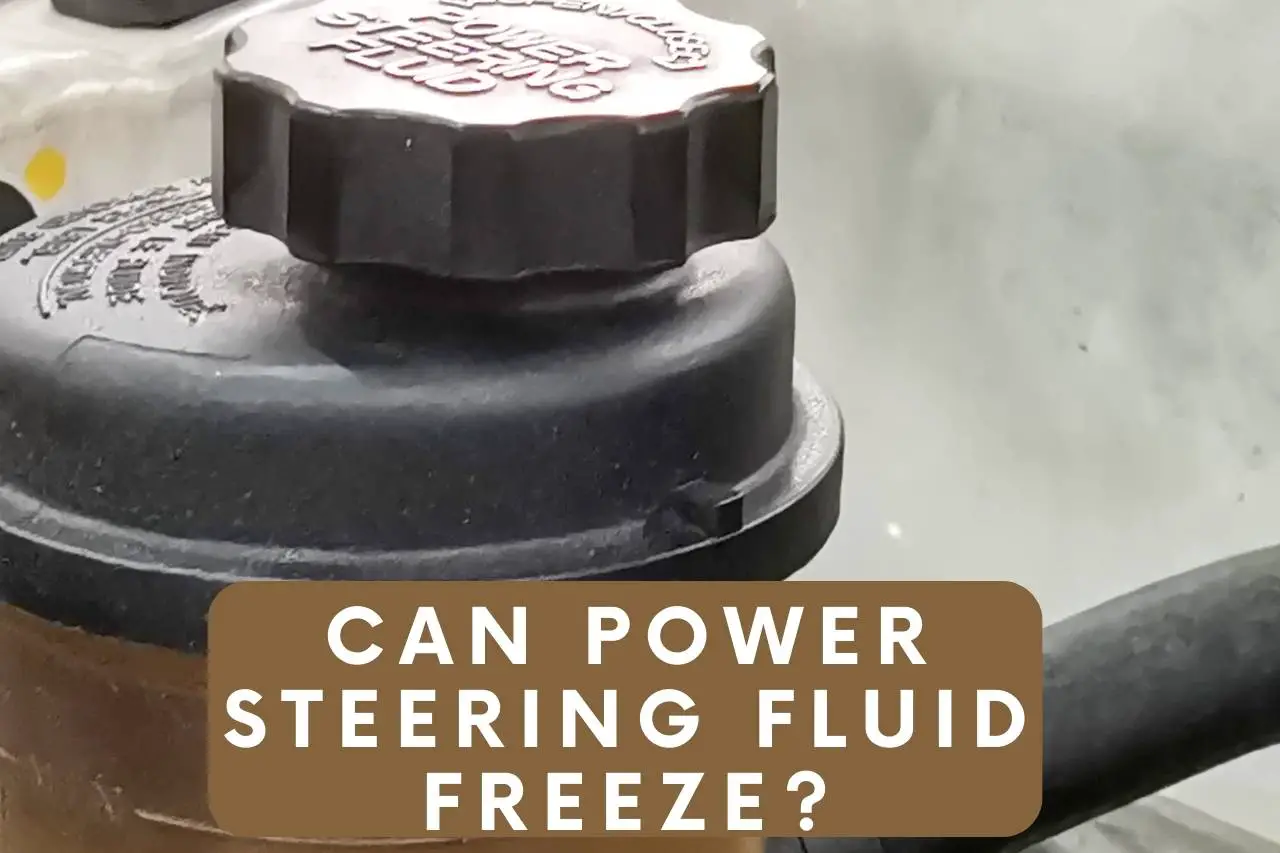Can Power Steering Fluid Freeze?
Yes, power steering fluid can freeze in extremely cold temperatures. Power steering fluid is susceptible to freezing in severe cold weather, which can impair the functionality of the power steering system.
When the fluid freezes, it becomes thick and loses its ability to flow properly through the system, resulting in difficult or unresponsive steering. It is crucial to ensure that the power steering fluid is at an adequate temperature to prevent freezing and maintain optimal steering performance.
This can be done by checking and replacing the fluid regularly, especially in colder climates, and using a fluid that is designed to withstand low temperatures. By taking these precautions, drivers can avoid the potential dangers and inconvenience caused by frozen power steering fluid.

Credit: www.elevate.in
What Happens When Power Steering Fluid Freezes
Power steering fluid can indeed freeze in low temperatures, and this can have a significant impact on steering performance. When power steering fluid freezes, it becomes thicker and less able to flow smoothly through the system. As a result, the power steering pump may struggle to generate enough pressure to assist with steering, making it harder to turn the steering wheel.
In addition to the difficulty in steering, freezing power steering fluid can also cause damage to the system. The increased pressure and strain on components can lead to leaks or even the failure of the power steering pump.
There are a few signs to look out for that indicate freezing power steering fluid. One clear indication is if the steering wheel feels stiff or becomes more difficult to turn in cold weather. Another sign is if there are unusual noises, such as a whining or groaning sound, coming from the power steering system.
To prevent power steering fluid from freezing, it’s important to use a fluid that is designed for cold weather conditions and to keep the vehicle in a heated garage or use a block heater. Regularly checking the power steering fluid level and quality is also crucial for maintaining optimal steering performance.
Preventing Power Steering Fluid From Freezing
Power steering fluid is essential for the smooth operation of your vehicle’s power steering system, but can it freeze? Yes, power steering fluid can freeze in extremely cold temperatures, causing damage to the system. However, there are steps you can take to prevent this from happening.
Choosing the right power steering fluid is crucial. Look for a fluid that is specifically designed for cold weather conditions. These fluids have a lower freezing point, ensuring they remain in a liquid state even in sub-zero temperatures.
Maintaining proper fluid levels is also important. Regularly check the fluid level and top up if necessary. This helps prevent the fluid from becoming too concentrated and more prone to freezing.
Another way to protect the power steering system from freezing is by insulating its components. Use foam or insulation tape to wrap around the power steering lines and reservoir. This helps retain heat and prevents freezing.
Dealing With Frozen Power Steering Fluid
When temperature drops below freezing point, power steering fluid can often freeze, causing potential issues for the vehicle’s power steering system. Thawing the frozen fluid is crucial to restoring the smooth operation of your power steering. Here are a couple of techniques that can help:
Thawing Techniques:
- Warming the Fluid: Bringing the vehicle into a warm environment, such as a heated garage, can help to thaw the frozen power steering fluid. Allow the engine to warm up gradually, which will help to melt the ice within the fluid.
- Using a Hairdryer: If you are in a situation where you need an immediate fix, you can use a hairdryer to warm up the power steering system components and thaw the frozen fluid.
- Flushing and Replacing Frozen Fluid: If the power steering fluid is severely frozen or contaminated, it may be necessary to flush and replace the fluid altogether. Consult your vehicle’s manual or seek professional help for the correct procedure.
If you find it difficult to thaw the frozen power steering fluid on your own, it is always advisable to seek professional assistance. An experienced mechanic will have the right tools and knowledge to resolve the issue effectively.
Frequently Asked Questions For Can Power Steering Fluid Freeze?
Does Cold Weather Affect Power Steering Fluid?
Cold weather can affect power steering fluid. The fluid may become thicker and less efficient, making it harder to steer. It’s important to make sure the fluid is at the proper level and to use a fluid recommended for colder temperatures.
How Do You Unfreeze Power Steering?
To unfreeze power steering, check the power steering fluid level and add if needed. Start the car, turn the steering wheel left and right fully a few times. If it doesn’t work, check for a broken serpentine belt. If all else fails, consult a professional mechanic.
How Do You Warm Up Power Steering Fluid?
To warm up power steering fluid, start the engine and let it run for a few minutes. This will allow the fluid to warm up naturally through the engine’s operating temperature. Avoid revving the engine excessively, as it may cause damage to the power steering system.
Why Did My Power Steering Fluid Freeze?
Power steering fluid can freeze because of low temperatures, which causes the liquid to turn into a solid. Insufficient antifreeze protection or water contamination can also contribute to freezing.
Conclusion
To conclude, power steering fluid can indeed freeze under extremely cold temperatures. This can lead to difficulties in steering and potential damage to the power steering system. It is crucial to use the right type of power steering fluid for the weather conditions and ensure it is at the correct level.
Regular maintenance and early detection of any issues can prevent freeze-ups and keep your power steering system running smoothly. Stay aware and take necessary precautions to keep your vehicle safe on the road.
